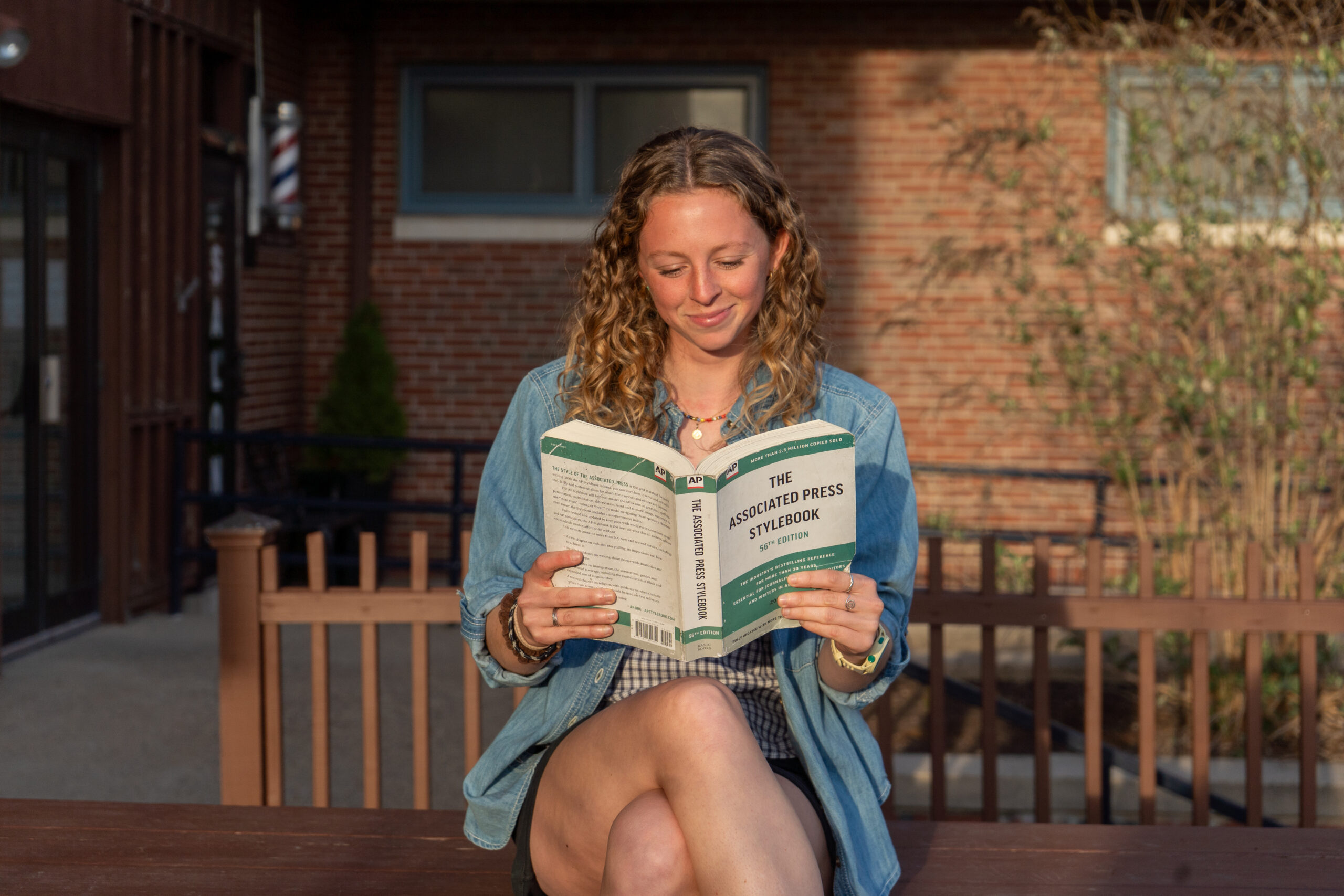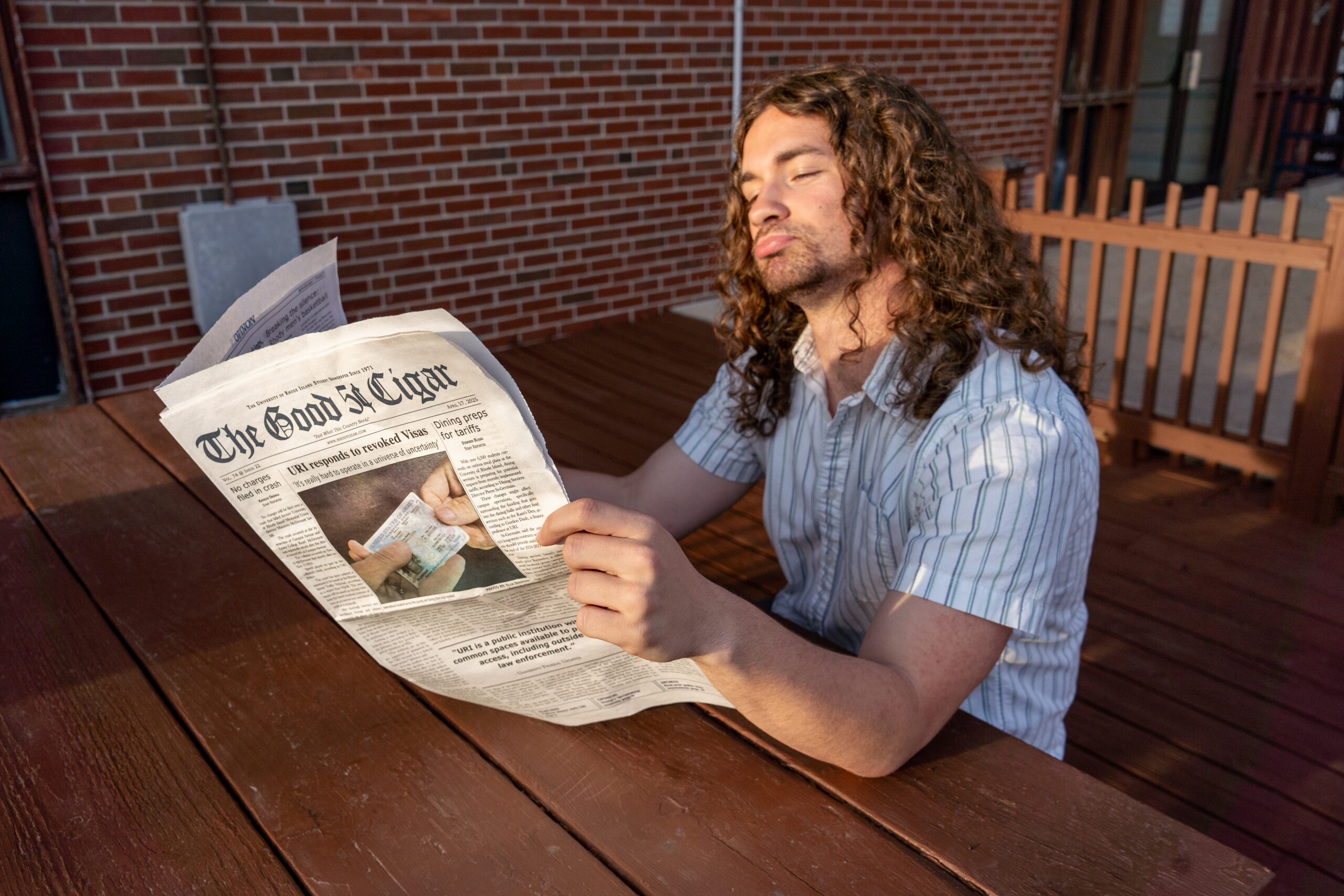This is the fifth installment of a semester-long series that documents my exploration of faith on the University of Rhode Island campus. The goal is to sit down with every religious community on campus and learn about their religion and community.
Judaism is more than just a religion. The executive director of URI Hillel, Amy Olson, described Judaism as a people with a shared history, culture and background. Even Jews that are secular, are proud to be Jewish. The ethnic, culture and family connection goes way beyond religion.
Well, in my series so far, I have covered Islam, Catholicism, Buddhism and a Christian group on campus called Sojourn. However, this is a new concept. In the other religions I followed, their communities were based on their religion. However, Judaism is based on more than just its religion.
This week, I sat down with Olson at the Norman M. Fain Hillel Center, which is the Jewish Student Center on Fraternity Circle.  I learned there are two main schools of Jewish thought – the “House of Hillel†and the “House of Shammai.†The House of Hillel is based off of Hillel the Elder, a famous Jewish religious leader, which the Jewish center at URI is named after. The other is named after Shammai and is based on his teachings.
Olson told me this story that helps describe the differences.
A stranger once went to Shammai’s front porch and told him to teach him the whole Torah while on one foot. Shamai essentially kicked the person off his porch. The man then did the same thing with Hillel. Hillel responded, “What is hateful to you, do not do to your neighbor. That’s the whole Torah. All the rest is commentary. Now go and learn it.â€
In just those three sentences Hillel told the man to question if what he’s doing is what he would want from his neighbor, while also introducing him to the Torah and influencing him to read it.
Olson said the center at URI follows this kind of thinking. She said everyone is always welcome, whether you want to learn about Judaism or just hang out. There are a list of activities on their website at urihillel.org. Every other week, they hold Shabbat on Friday evenings.
They also do a lot of community service and work with many of the organizations on campus like the Gender and Sexuality Center, the Multicultural Student Services Center and the Women’s Center. They hold many social and educational events for specific holidays or important events, like their Holocaust Remembrance Week and events based on Israel. Olson predicted that there were close to 1,000 Jews on campus. (This was an educated guess, not based off of surveys).
Because I cannot possibly explain the whole religion in one story, instead, I will list some things that Olson told me, which I think students will find particularly interesting:
- The religion doesn’t take the Bible literally but as a document you can learn from. So you can’t discredit Judaism because of contradictions between science and the Bible.
- Olson said in Judaism, you are your own agent. If you do something wrong, you must make amends with whom you affected. A priest or God cannot forgive you. God can only forgive you for offenses against God. This puts the responsibility in human hands and doesn’t get you off the hook because of a confession.
- Salvation is not a major concern in Judaism, at least not for Olson. The focus is to be the best person you can be when you’re on Earth. What I like about Islam is that salvation is not granted because you believe in the scripture. Salvation is only granted for those who have shown in their actions that they deserve it. And this doesn’t mean that if you follow a moral guidebook, you’ll be set for salvation. It’s deeper than that. Anyways, Judaism is similar in the way they are focused on being the best they can. They have done this by taking the focus off of salvation.
- She gets this question a lot: How has Judaism survived through the years, despite enslavement and genocide? She said she thinks it’s due to the emphasis on recounting stories. They are constantly retelling stories to each other that stress the importance of community.
Judaism is one of the more complex religions/cultures I have examined this semester. If you are interested in learning more, attend an event at the Jewish Center and learn about the community.
“Judaism is as far from black and white as it gets,†Olson said. “It’s a religion that places value on thinking and interpreting.â€



